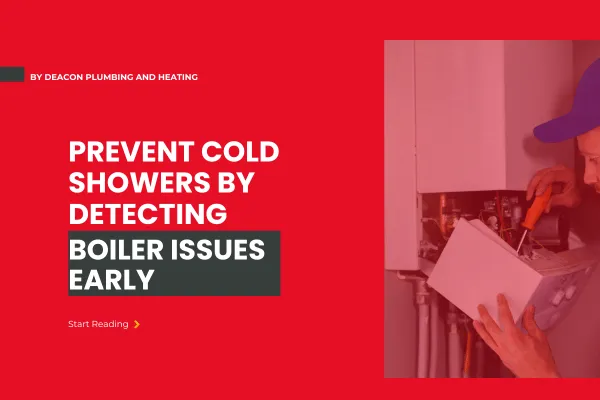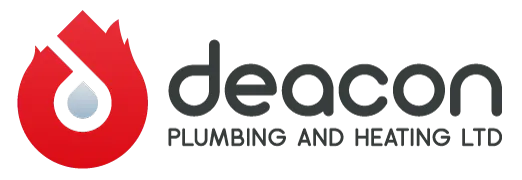
Prevent Cold Showers by Detecting Boiler Issues Early
Avoid a Cold Shower This Autumn: How to Spot Boiler Problems Early With Expert Maintenance Tips
Introduction As autumn approaches and the chill sets in, ensuring a reliable boiler is essential to avoid cold showers and costly emergency repairs. Homeowners, landlords, and small businesses must recognize early signs of boiler failure to keep heating systems warm, safe, and efficient. This article outlines key indicators of boiler problems, essential maintenance routines, and safe troubleshooting techniques. With expert insights from Deacon Plumbing & Heating, readers learn how to maintain peak boiler performance and avoid unexpected breakdowns.
Key Takeaways
Early detection of issues like leaks and unusual noises prevents severe damage.
Regular maintenance and safety checks are essential for a well-functioning heating system.
Following step-by-step troubleshooting guidelines can save time and money.
Awareness of boiler problems and safety measures helps avoid emergency repairs.
What Are the Most Common Signs of Boiler Failure to Watch For?

Common warning signs include unexplained leaks, erratic or unusual noises, and irregular pilot light behavior. These symptoms often reveal underlying issues such as faulty seals, corroded heat exchangers, or ignition system problems, all of which require timely maintenance.
How Can You Identify Boiler Leaks Before They Cause Damage?
Boiler leaks can appear as damp patches, corrosion on pipework, or puddles near the appliance. Regular inspections, monitoring water bills for unusual increases, and staying alert for abnormal moisture are key to catching leaks early. Even a small leak can reduce boiler efficiency and cause
over time.
What Do Strange Noises From Your Boiler Mean?
Banging, whistling, or gurgling noises may signal trapped air or component malfunctions such as sludging or limescale build-up. These sounds suggest that water flow is being impaired and internal parts may be under stress. A licensed professional should examine any persistent or unusual noises to prevent further damage.
How to Recognize Pilot Light Problems Early
A flickering, weak, or extinguishing pilot light can indicate ignition system failures or poor gas supply. Causes might include a malfunctioning thermocouple or air drafts disrupting the flame. Recognizing these issues early helps initiate repairs before the boiler stops working entirely.
How Often Should You Perform Boiler Maintenance to Prevent Breakdowns?
Regular maintenance prolongs boiler life and ensures reliable function during colder months. While annual servicing by a certified engineer is recommended, homeowners should also perform simple checks frequently to catch minor issues early.
What Does a Comprehensive Boiler Maintenance Checklist Include?
A good maintenance checklist covers visual inspections, leak detection, pressure testing, and cleaning the combustion chamber. Key tasks are checking the pilot light, inspecting pipework for corrosion, cleaning the heat exchanger, and ensuring safety valves function properly. Documentation of any wear can help professionals during servicing.
What Are the Benefits of Regular Boiler Servicing in Autumn?
Servicing in autumn improves energy efficiency, reduces fault risks during winter, and enhances safety by ensuring carbon monoxide detectors and gas safety controls are operational. A well-maintained boiler not only lowers energy bills but also minimizes the likelihood of emergency repairs.
How Can Homeowners Troubleshoot Common Boiler Problems Safely?

Homeowners can follow simple, step-by-step procedures to troubleshoot minor issues before seeking professional help. Safety remains the priority, so only perform actions recommended by the boiler manual.
What Are Step-by-Step Instructions to Reset Your Boiler?
Resetting typically involves turning the boiler off, waiting a few minutes, then turning it back on using the reset button for at least 10 seconds. Ensure the thermostat is set correctly and that power and gas supplies are adequate. If the problem persists after a reset, professional assistance is necessary.
How to Troubleshoot Low Boiler Pressure Issues
Low pressure, indicated by a pressure gauge reading below the recommended level, is often due to minor leaks or the need to bleed the system. Check for visible leaks and repressurize the boiler using the filling loop valve until the reading is restored to between 1 and 1.5 bar. Repeated low readings could point to a faulty pressure relief valve or internal corrosion that a technician should evaluate.
When Should You Stop Troubleshooting and Call a Professional?
If resets do not resolve the problem, if pressure drops repeatedly, or if leaks and unusual noises continue, it is time to call a professional. Complex or recurring issues may create safety hazards such as gas leaks or carbon monoxide build-up.
What Are the Most Frequent Boiler Problems and Their Solutions?
Frequent problems include insufficient heating, ongoing pilot light failures, and loss of boiler pressure. These issues often result from maintenance neglect or component wear and, if not addressed, can lead to expensive repairs.
Why Is Your Boiler Not Heating Water and How to Fix It?
A boiler that fails to heat water may suffer from a faulty thermostat, broken heating elements, or a malfunctioning circulation pump. Checking for error codes, recalibrating the thermostat, ensuring optimal water pressure, and removing airlocks are good initial steps. If hot water does not return, replacement of worn components or a professional inspection of the heat exchanger may be necessary.
How to Address Boiler Pilot Light Failures Quickly
Pilot light issues can arise from a disrupted gas supply, faulty thermocouples, or wind drafts. Ensuring proper alignment of the pilot light and a stable gas supply, along with cleaning or replacing defective parts, can restore flame stability. Always follow safety instructions and consult professionals if there is any doubt.
What Causes Boiler Pressure Loss and How to Resolve It?
Boiler pressure loss is usually due to leaks, air accumulation, or faulty valves. After checking for visible leaks, manually repressurize the boiler via the filling loop. Persistent pressure loss may indicate a failing relief valve or internal corrosion, both requiring professional servicing to restore safe operating conditions.
What Essential Boiler Safety Checks Should You Perform This Autumn?

Safety checks are critical as the risk of carbon monoxide poisoning and boiler failure increases with colder weather. Routine inspections help maintain system integrity and reduce potential hazards during high-demand autumn months.
How to Conduct Carbon Monoxide Safety Checks at Home
Install a carbon monoxide detector near the boiler and in sleeping areas. Ensure detectors are calibrated annually and batteries replaced as needed. Keep the boiler’s combustion process clean and efficient to prevent dangerous CO build-up. If the detector alerts, evacuate immediately and contact emergency services.
What Are the Latest Gas Safety Regulations for Boilers?
Boilers must undergo annual inspections by a Gas Safe registered engineer. Regulations require routine checks for gas leaks and ensure that safety devices such as overheat cut-offs and carbon monoxide detectors are installed correctly. Staying compliant with these standards reduces the risk of fatal accidents.
How to Ensure Your Boiler Flue and Ventilation Are Safe
Regular cleaning and inspection of the boiler flue and ventilation system are vital to prevent blockages that can cause exhaust gases to accumulate indoors. Annual professional inspections, and checks after any significant home modifications, help maintain safe and efficient system operation.
When Is It Time to Call a Boiler Repair Professional?
If troubleshooting does not resolve recurring issues or if safety risks like gas leaks or carbon monoxide are suspected, call a professional. Expert diagnosis and repairs ensure long-term safety and reliability.
What Emergency Boiler Repair Services Are Available in Autumn?
Emergency repair services are available 24/7 from licensed professionals specializing in urgent boiler issues. In autumn, prompt repairs prevent prolonged downtime and discomfort. These services include rapid diagnostics, component replacement, and full system checks to confirm all safety measures are intact.
How Does Rapid Response Prevent Cold Showers and Further Damage?
A qualified technician can quickly address faults like leaks and pressure drops, preventing extended outages and additional damage. Fast repairs help reduce financial burdens related to extensive repairs or replacement, keeping the heating system running smoothly during peak demand.
How Can You Prepare Your Heating System for Autumn to Avoid Boiler Failures?

Proper preparation involves routine maintenance and pre-season checks to ensure optimal boiler performance. This proactive approach enhances energy efficiency and extends the system’s lifespan, reducing unexpected breakdowns during high-demand periods.
What Pre-Season Checks Can Prevent Boiler Breakdowns?
Inspect all boiler components—including the pilot light, pressure gauge, and safety valves—for potential issues. Testing the system under increased temperature demand can reveal hidden airlocks or minor leaks. Cleaning and removing limescale before the season begins helps ensure uninterrupted operation during colder months.
How Does Regular Plumbing Maintenance Support Boiler Efficiency?
Well-maintained plumbing ensures that pipes, valves, and fittings function correctly, preserving optimal water pressure and flow. Routine maintenance reduces the risk of overheating and pressure loss, lowering energy bills and preventing emergency repairs.
Frequently Asked Questions
Q: How can I tell if my boiler is leaking? A: Look for damp spots or corrosion around the boiler. Unexplained puddles and a sudden increase in your water bill often indicate a leak needing professional attention.
Q: What should I do if I hear strange noises from my boiler? A: Unusual noises like banging or gurgling may suggest airlocks or component wear. Refer to your boiler manual and seek a professional inspection if the sounds persist.
Q: Is it safe to try and fix boiler issues myself? A: While minor troubleshooting steps are often safe, persistent issues or pilot light problems should be handled by a certified engineer to avoid safety hazards.
Q: How often should I have my boiler serviced? A: It is recommended to have your boiler professionally serviced at least once a year, ideally before the heating season begins.
Q: What are the signs of low boiler pressure I should watch for? A: A dropping pressure gauge and insufficient heating indicate low pressure. Repressurizing the system may help, but persistent issues require professional resolution.
Final Thoughts
Autumn demands careful preparation of your heating system to ensure comfort and safety. Recognizing early indicators such as leaks, unusual noises, and pilot light failures allows for timely maintenance and prevents emergency repairs. Regular safety checks—including carbon monoxide testing and flue inspections—further reduce hazards, ensuring that your boiler remains efficient and reliable throughout the colder months.

